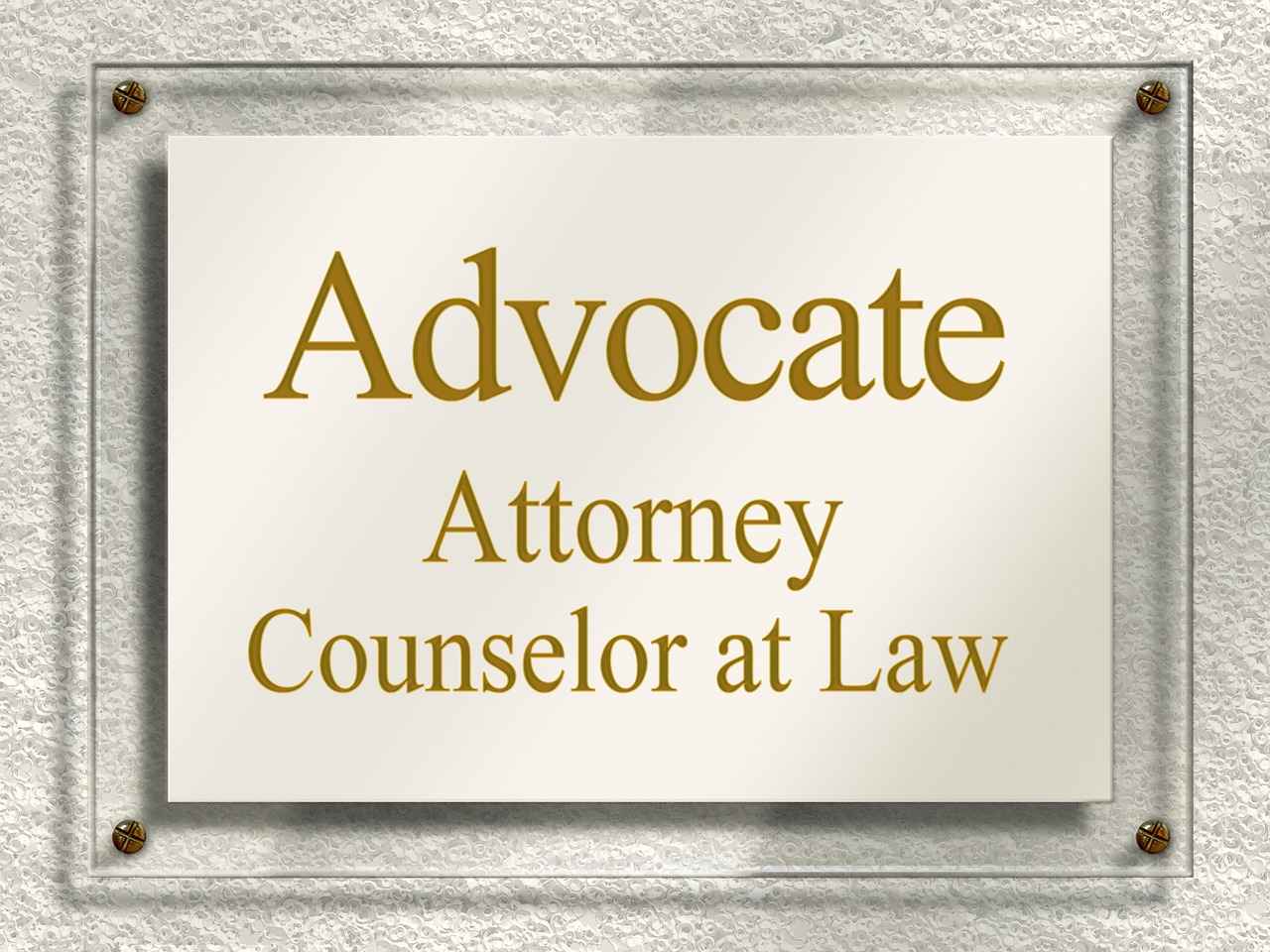This article provides comprehensive guidance on identifying qualified legal professionals in Oakland, California, covering various types of legal cases and offering practical tips for selecting the right attorney.
When searching for a lawyer or attorney in Oakland, California, it is essential to understand the variety of legal cases you might encounter. This knowledge will help you identify the right legal professional for your specific needs. Below, we explore common types of legal cases and provide expert advice on how to find the most qualified attorneys in each category.
Personal injury cases arise when an individual suffers harm due to another person’s negligence. These cases can range from car accidents to slip-and-fall incidents. To find the right personal injury attorney, consider the following:
- Look for specialization: Seek attorneys who specialize in personal injury law.
- Check reviews: Online reviews and testimonials can provide insight into an attorney’s track record.
- Consultations: Many personal injury lawyers offer free consultations, allowing you to gauge their expertise and approach.
Medical malpractice cases involve healthcare professionals failing to meet the standard of care, resulting in harm to patients. To navigate these complex cases, it is crucial to find an attorney with specific experience in medical malpractice:
- Verify credentials: Ensure the attorney has a background in medical malpractice law.
- Ask about past cases: Inquire about their experience with similar cases and outcomes.
- Trust your instincts: Comfort and trust in your attorney are vital for a successful partnership.
Breach of contract cases occur when one party fails to fulfill their contractual obligations. Identifying an experienced attorney can help you navigate the intricacies of contract law effectively:
- Seek referrals: Ask business associates or friends for recommendations.
- Review past work: Look for attorneys with a proven track record in contract disputes.
- Examine communication skills: Effective communication is key in legal representation.
Property disputes can involve various issues, from boundary disputes to ownership claims. Finding a knowledgeable attorney in Oakland is essential for resolving these conflicts efficiently:
- Local expertise: Choose an attorney familiar with local property laws and regulations.
- Assess negotiation skills: Look for attorneys skilled in negotiation and mediation.
- Check their litigation experience: If the case goes to court, litigation experience is crucial.
Landlord-tenant disputes are common in urban areas. Knowing how to locate a reliable attorney can help both landlords and tenants understand their rights and obligations under California law:
- Understand local laws: Ensure the attorney is well-versed in California landlord-tenant laws.
- Look for specialized experience: Choose an attorney who has handled similar disputes.
- Consider mediation options: An attorney who offers mediation services can often resolve disputes more amicably.
Defamation cases, involving libel and slander, require specialized legal expertise. Identifying a qualified attorney can make a significant difference in the outcome of these sensitive cases:
- Focus on experience: Look for attorneys who have successfully handled defamation cases.
- Research their reputation: A well-respected attorney in the community can provide an advantage.
- Ask about their strategy: Understanding their approach to defamation cases is essential.
Employment disputes cover a range of issues, from wrongful termination to harassment. Understanding how to find an attorney with specific experience in employment law is crucial for protecting your rights:
- Seek attorneys with labor law expertise: Specialization in employment law is vital.
- Check for successful outcomes: Look for attorneys with a history of favorable results in employment disputes.
- Assess communication style: Open and honest communication is key in employment law cases.
Product liability cases arise when a defective product causes harm. Knowing how to find an attorney with experience in this field can help you seek compensation effectively:
- Assess their track record: Look for attorneys with a history of successful product liability cases.
- Evaluate their understanding of product safety laws: Knowledge of regulations is essential.
- Consider their negotiation skills: Strong negotiation skills can lead to better settlements.
Wrongful death cases require sensitivity and expertise. Finding an attorney who specializes in these cases can help families navigate the legal process during a difficult time:
- Look for compassionate representation: Choose an attorney who understands the emotional toll of wrongful death cases.
- Check their experience: Ensure they have handled similar cases successfully.
- Evaluate their communication style: Open communication is essential during such a sensitive time.
Class action lawsuits allow groups of people to collectively sue for damages. Understanding how to find an attorney experienced in class actions is essential for a successful claim:
- Seek specialized attorneys: Look for lawyers who focus on class action lawsuits.
- Review their past class action cases: Assess their success rate in similar cases.
- Understand the fee structure: Class action attorneys often work on a contingency basis; ensure you understand the terms.
Criminal cases such as assault and battery require skilled legal representation. Knowing how to find a qualified criminal defense attorney is crucial for anyone facing serious charges:
- Check their criminal law experience: Focus on attorneys who specialize in criminal defense.
- Look for positive client reviews: Client testimonials can provide valuable insights.
- Assess their courtroom experience: A strong presence in court can be beneficial.
Family law encompasses various issues, including divorce and child custody. Finding an attorney who specializes in family law can help you navigate these emotionally charged situations effectively:
- Seek specialized family law attorneys: Look for lawyers who focus on family law issues.
- Evaluate their negotiation skills: Effective negotiation can lead to better outcomes in custody and divorce cases.
- Consider their approach to mediation: Attorneys who promote mediation may help resolve disputes amicably.
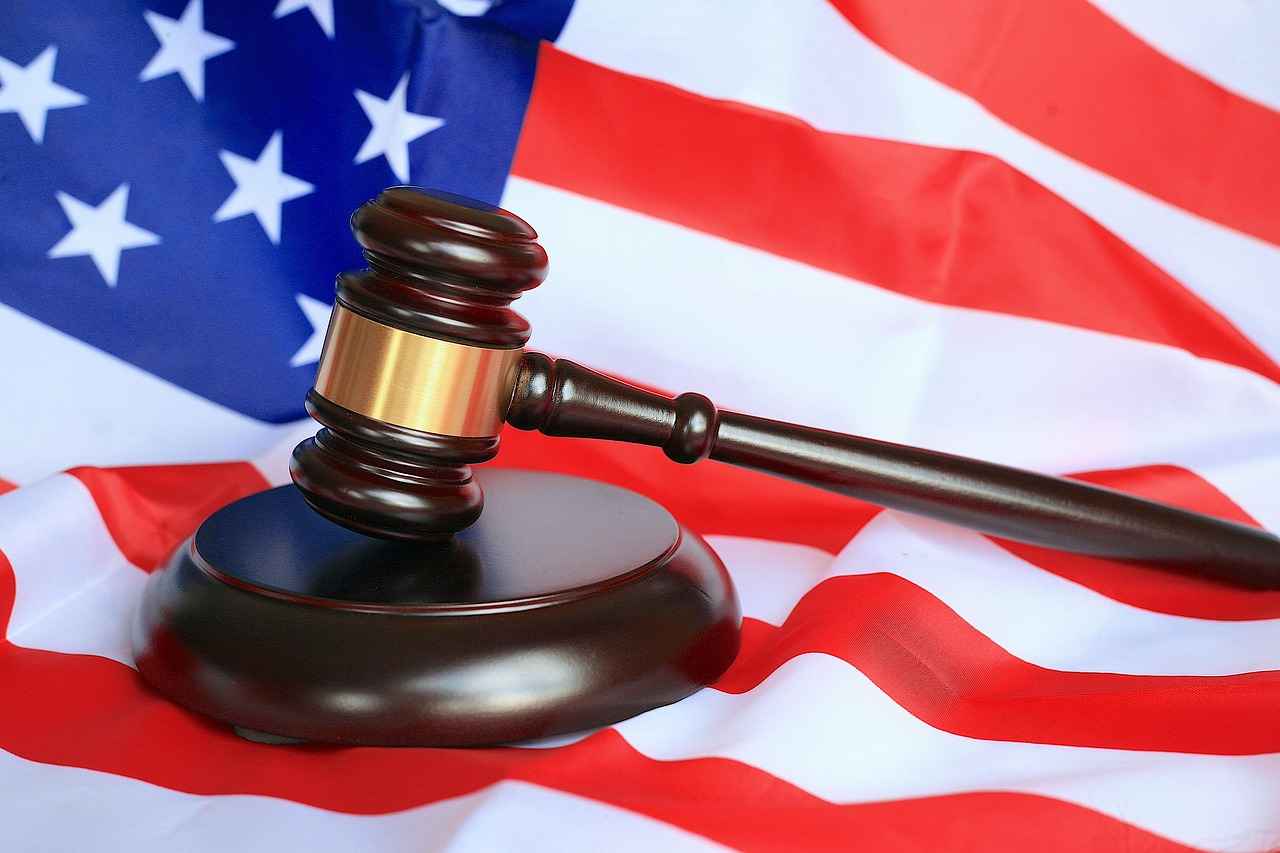
Understanding Personal Injury Cases
Personal injury cases are among the most prevalent types of legal disputes in the United States. These cases arise when an individual suffers harm due to the negligence or wrongful actions of another party. Common examples include car accidents, slip and fall incidents, and workplace injuries. Understanding the nuances of personal injury law is essential for both victims seeking compensation and attorneys representing them.
When it comes to finding the right attorney for personal injury cases, several factors should be considered:
- Experience: Look for attorneys who specialize in personal injury law and have a proven track record of successful cases. An experienced attorney will be familiar with the nuances of local laws and court procedures.
- Reputation: Research the attorney’s reputation through online reviews, testimonials, and referrals. A strong reputation can indicate reliability and competence.
- Communication: Choose an attorney who communicates clearly and promptly. Effective communication is vital for understanding your case and the legal process.
- Fees: Most personal injury attorneys work on a contingency fee basis, meaning they only get paid if you win your case. Ensure you understand their fee structure before signing any agreements.
- Initial Consultation: Many attorneys offer free consultations. Use this opportunity to ask questions and gauge their expertise and approach to your case.
Additionally, consider the attorney’s negotiation skills and willingness to take your case to trial if necessary. Many personal injury cases are settled out of court, but having an attorney prepared to advocate for you in front of a judge can significantly impact the outcome.
In metropolitan areas like New York City, Los Angeles, and Chicago, the competition among personal injury attorneys can be fierce. Utilize online platforms such as Avvo, FindLaw, and Justia to compare attorneys based on their qualifications and client reviews. These platforms can help you find qualified attorneys who specialize in personal injury law and are familiar with the local legal landscape.
In summary, navigating personal injury cases requires careful consideration when selecting an attorney. By focusing on experience, reputation, communication, fees, and initial consultations, you can find a qualified legal professional who will advocate for your rights and help you secure the compensation you deserve.

Medical Malpractice: Finding the Right Attorney
Medical malpractice is a significant area of law that focuses on situations where healthcare professionals, including doctors, nurses, and hospitals, fail to meet the accepted standard of care, leading to patient harm. This legal domain is complex, requiring not only a deep understanding of medical practices but also the nuances of legal proceedings. When pursuing a medical malpractice case, selecting the right attorney is crucial for navigating the intricacies involved.
To begin your search for a qualified attorney, consider the following steps:
- Research Specialization: Look for attorneys who specialize in medical malpractice. They should have a proven track record in handling similar cases. Many law firms have dedicated sections for personal injury and medical malpractice, making it easier to identify experts in this field.
- Check Credentials: Verify the attorney’s qualifications, including their education, experience, and any specialized certifications in medical malpractice law. Membership in professional organizations, such as the American Association for Justice, can also be a positive indicator.
- Read Reviews and Testimonials: Online reviews from former clients can provide insights into the attorney’s effectiveness and approach. Websites like Avvo and Martindale-Hubbell offer ratings and reviews that can help guide your decision.
- Consultation Meetings: Schedule initial consultations with potential attorneys. Many offer free consultations, allowing you to gauge their communication style, approach to your case, and overall compatibility. Prepare questions regarding their experience with medical malpractice cases and their strategy for your specific situation.
- Assess Communication Skills: An effective attorney should be able to communicate complex legal concepts in a way that you can understand. They should be responsive to your inquiries and keep you informed throughout the process.
- Evaluate Fees and Payment Structures: Understand the attorney’s fee structure before committing. Many medical malpractice attorneys work on a contingency fee basis, meaning they only get paid if you win your case. Ensure you are clear about any potential costs involved.
Another important aspect to consider is the attorney’s experience with medical experts. Medical malpractice cases often require testimony from medical professionals to establish the standard of care and demonstrate how it was breached. An attorney with a strong network of medical experts can significantly enhance your case’s chances of success.
It is also essential to be aware of red flags when selecting an attorney. Avoid those who make unrealistic promises about the outcome of your case or who seem more focused on settling quickly rather than achieving the best possible outcome for you. Additionally, be cautious of attorneys who lack transparency regarding their fees or case strategy.
In summary, finding the right attorney for a medical malpractice case requires thorough research, careful consideration of credentials, and an evaluation of their communication style and approach. By following these guidelines, you can increase your chances of selecting a skilled legal professional who will advocate effectively on your behalf.

Breach of Contract: Legal Representation Essentials
A breach of contract occurs when one party fails to fulfill their obligations as outlined in a legally binding agreement. This situation can lead to significant financial losses and disputes. Understanding the nuances of contract law is crucial for both individuals and businesses. In this context, finding a qualified attorney is essential for navigating the complexities of these cases effectively.
When seeking legal representation for a breach of contract case, consider the following steps:
- Look for Specialized Experience: Not all attorneys have the same expertise. It’s vital to find a lawyer who specializes in contract law. Look for an attorney with a proven track record in handling breach of contract cases specifically.
- Check Credentials: Ensure that the attorney is licensed to practice in your state and has a good standing with the state bar association. Additional certifications in contract law can also be beneficial.
- Read Reviews and Testimonials: Online reviews and testimonials from previous clients can provide insight into the attorney’s effectiveness and approach. Websites like Avvo and Martindale-Hubbell can be helpful resources.
- Schedule a Consultation: Most attorneys offer a free initial consultation. Use this opportunity to discuss your case and assess their understanding of breach of contract issues. Pay attention to their communication style and willingness to answer your questions.
- Evaluate Their Strategy: During the consultation, ask the attorney how they would approach your case. A knowledgeable lawyer will provide a clear plan of action and explain the potential outcomes.
- Understand Fee Structures: Legal fees can vary significantly. Make sure to discuss and understand the attorney’s fee structure upfront. Some may charge hourly rates, while others may work on a contingency basis.
In metropolitan areas like New York City, Los Angeles, and Chicago, the legal landscape can be competitive. This means that having a clear understanding of your needs and being proactive in your search is essential. Look for attorneys who are familiar with local laws and regulations, as these can impact your case significantly.
Moreover, consider the attorney’s negotiation skills, as many breach of contract cases can be resolved without going to trial. An attorney with strong negotiation abilities can often secure a favorable settlement for you.
Finally, be wary of red flags, such as attorneys who guarantee specific outcomes or those who pressure you into making quick decisions. A reputable lawyer will provide honest advice and prioritize your best interests throughout the process.
In summary, finding the right attorney for a breach of contract case requires careful consideration and research. By following these steps, you can ensure that you have competent legal representation to help you navigate the complexities of contract law.
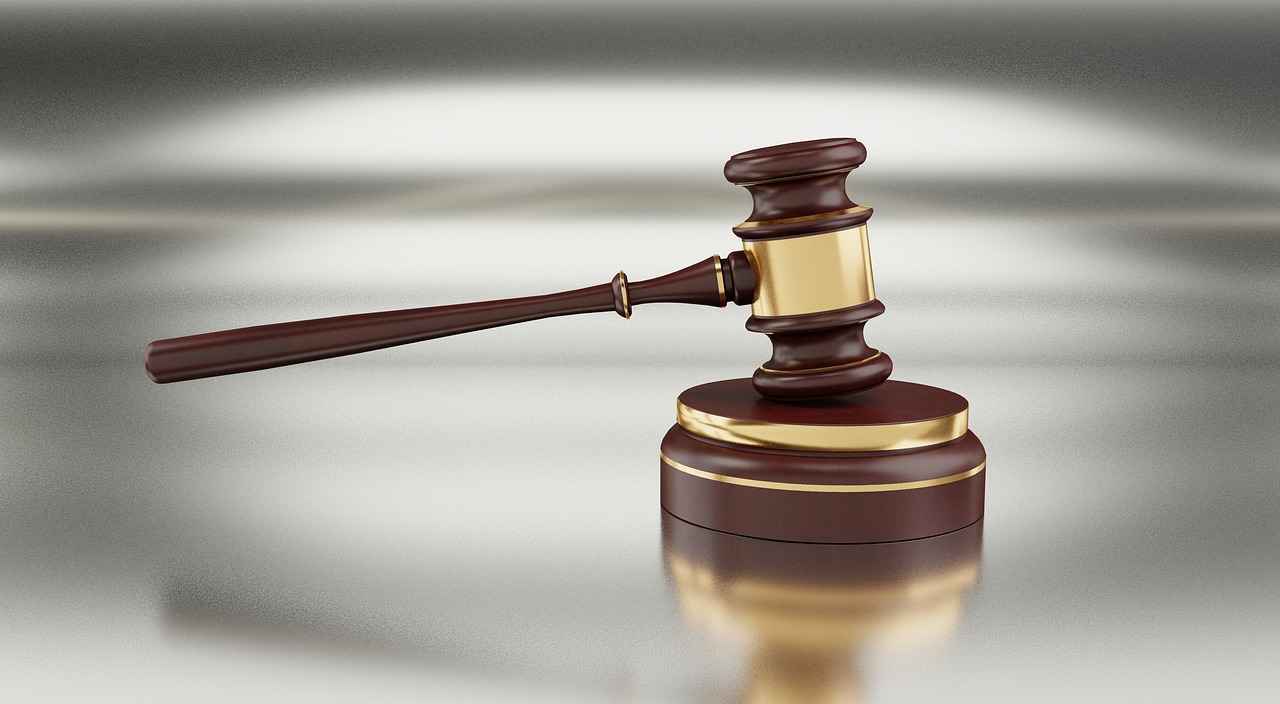
Property Disputes: Choosing the Right Legal Help
Property disputes can arise from a multitude of issues, including boundary disagreements, ownership claims, and zoning conflicts. These disputes can be complex and emotionally charged, often requiring the expertise of a knowledgeable attorney to navigate effectively. In Oakland, California, finding the right legal representation is crucial to resolving these conflicts efficiently and equitably.
When searching for an attorney specializing in property disputes, consider the following key factors:
- Experience and Specialization: Look for attorneys who have a proven track record in property law. A lawyer who specializes in real estate disputes will have the necessary knowledge of local laws and regulations.
- Reputation: Research potential attorneys through online reviews, testimonials, and ratings on platforms like Avvo or Martindale-Hubbell. A strong reputation can indicate reliability and competence.
- Communication Skills: Effective communication is essential in legal matters. Choose an attorney who listens to your concerns and explains the legal process clearly.
- Consultation: Many attorneys offer free initial consultations. Use this opportunity to gauge their understanding of your issue and their approach to handling it.
- Fees and Billing Structure: Understand the attorney’s fee structure upfront. Some may work on a contingency basis, while others may charge hourly rates. Ensure that you are comfortable with the financial arrangements.
In addition to these factors, it is essential to be aware of common red flags when selecting legal representation:
- Pressure Tactics: Be cautious of attorneys who pressure you into making quick decisions or signing contracts without adequate explanation.
- Lack of Transparency: If an attorney is not forthcoming about their experience, fees, or the legal process, it may indicate a lack of professionalism.
- Poor Communication: If an attorney is difficult to reach or does not respond promptly to your inquiries, this could be a sign of future communication issues.
In Oakland, you can find legal help through various resources. Local bar associations often provide referral services that can connect you with qualified attorneys. Additionally, online legal directories can be valuable tools for researching potential candidates. Be sure to check their credentials, including their education, years of practice, and any specialties they may have.
Ultimately, the right attorney can make a significant difference in the outcome of your property dispute. By conducting thorough research and considering the factors outlined above, you can find a capable legal professional who will advocate for your rights and help you navigate the complexities of property law.
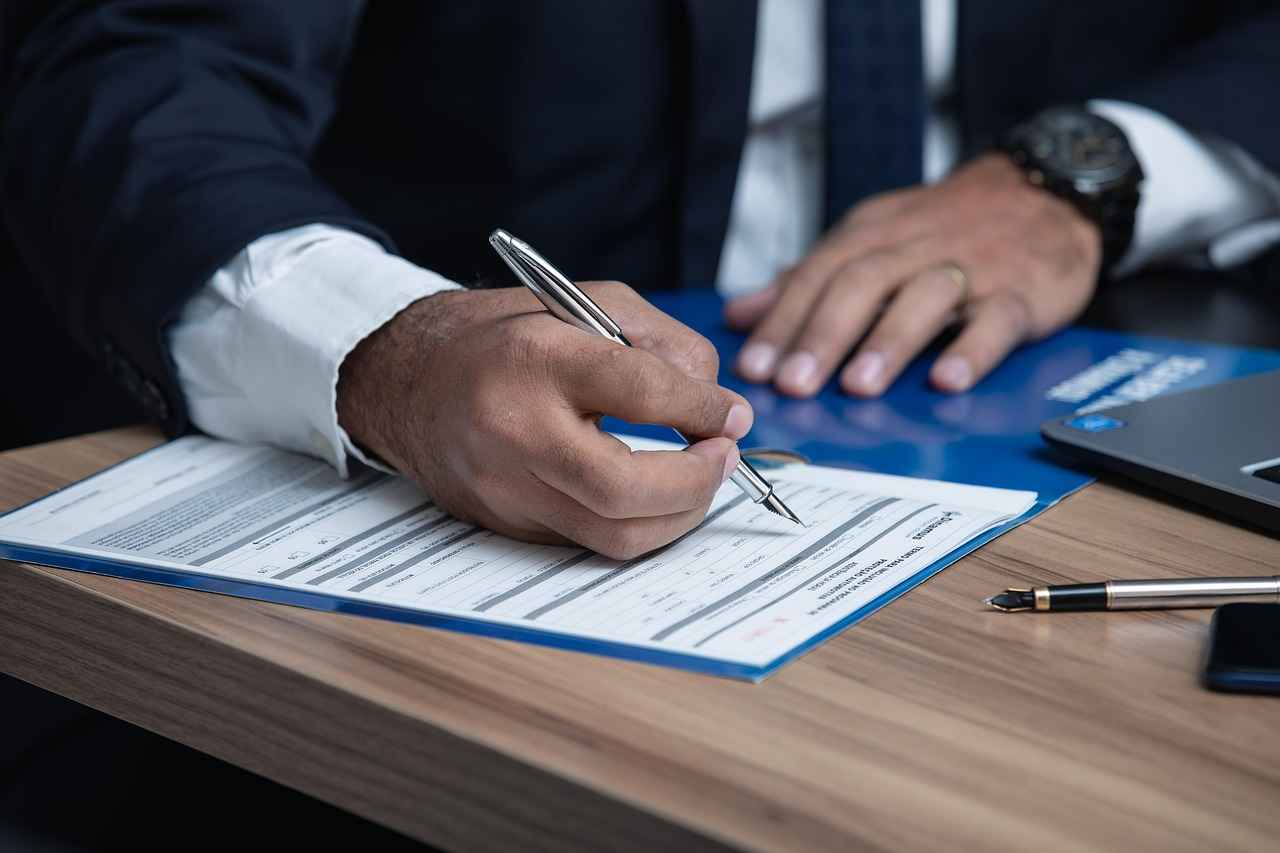
Landlord-Tenant Disputes: Legal Guidance Needed
Landlord-tenant disputes are increasingly prevalent in urban areas, where the dynamics of rental agreements can lead to misunderstandings and conflicts. Whether you are a landlord seeking to enforce your rights or a tenant trying to protect your interests, understanding the legal landscape is crucial. In California, the law is designed to protect both parties, but navigating these regulations can be daunting without proper legal guidance.
To effectively address landlord-tenant disputes, it is essential to find a reliable attorney who specializes in this area of law. Here are some practical steps to help you locate the right legal professional:
- Research Online: Start by searching for attorneys in your area who specialize in landlord-tenant law. Websites like Avvo and FindLaw offer directories of lawyers along with client reviews and ratings.
- Check Credentials: Look for attorneys who are members of relevant legal associations, such as the California State Bar or local bar associations. Membership indicates a commitment to staying updated on legal changes and best practices.
- Consult Reviews and Testimonials: Read reviews from previous clients to gauge the attorney’s effectiveness, communication style, and overall satisfaction. Pay attention to feedback specifically related to landlord-tenant disputes.
- Schedule Consultations: Many attorneys offer free initial consultations. Use this opportunity to discuss your case and assess whether the attorney’s approach aligns with your needs. Prepare questions regarding their experience with similar cases.
- Assess Communication Skills: Effective communication is key in legal matters. Ensure that the attorney listens to your concerns and explains complex legal terms in a way that you can understand.
- Understand Fee Structures: Legal fees can vary significantly. Inquire about the attorney’s fee structure, whether it’s hourly, flat-rate, or contingent. Make sure you understand what services are covered under the agreed fee.
Landlord-tenant disputes can arise from various issues, including non-payment of rent, lease violations, or property maintenance problems. Knowing your rights and obligations is essential. For instance, California law requires landlords to provide habitable living conditions, while tenants must pay rent on time and adhere to lease agreements. An attorney can help clarify these rights and represent your interests effectively.
Furthermore, if a dispute escalates to eviction proceedings, having a knowledgeable attorney can make a significant difference in the outcome. They can help you navigate the complexities of eviction laws, ensuring that all procedures are followed correctly to avoid unnecessary delays or legal complications.
In summary, finding the right attorney for landlord-tenant disputes in California involves thorough research, understanding their credentials, and assessing their communication and fee structures. With the right legal guidance, both landlords and tenants can better understand their rights and obligations, leading to more favorable resolutions in disputes.
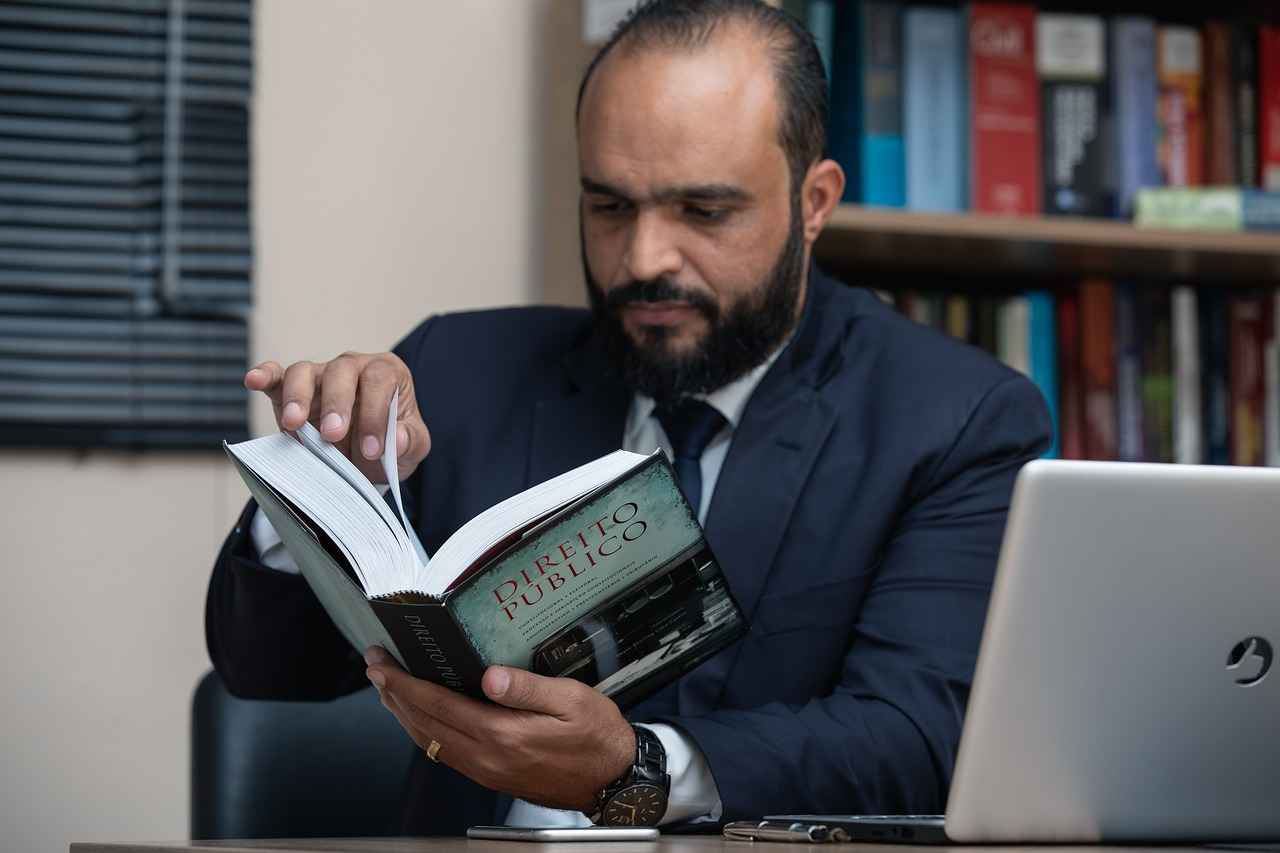
Defamation Cases: Finding a Qualified Lawyer
When it comes to defamation cases, which encompass both libel (written defamation) and slander (spoken defamation), the legal landscape can be quite intricate. These cases often hinge on the balance between freedom of speech and the protection of individual reputation. Therefore, finding a qualified attorney who specializes in defamation law is crucial for navigating these sensitive legal waters.
Defamation cases can arise in various contexts, from social media posts to professional reviews. The stakes are high, as a successful claim can lead to significant damages and a public vindication, while an unsuccessful claim may result in further harm to the plaintiff’s reputation. Here are some essential steps to consider when searching for a lawyer to represent you in a defamation case:
- Seek Specialization: Look for attorneys who specialize in defamation law or have extensive experience in media law. Their expertise will be invaluable in understanding the nuances of your case.
- Check Credentials: Verify their educational background and any specialized training in defamation or related fields. Membership in professional organizations, such as the American Bar Association, can be a good indicator of their commitment to the field.
- Review Track Record: Look for lawyers with a proven history of handling defamation cases successfully. Ask about their past outcomes and whether they have experience with cases similar to yours.
- Consult Online Reviews: Utilize platforms like Avvo or Martindale-Hubbell to read client reviews and ratings. This can provide insight into their reputation and how they handle client relationships.
- Schedule a Consultation: Most attorneys offer a free initial consultation. Use this opportunity to discuss your case and evaluate their approach. Pay attention to how they communicate and whether they seem genuinely interested in your situation.
- Assess Communication Skills: A good attorney should be able to explain complex legal concepts in a way that is easy to understand. Ensure that they are responsive to your questions and concerns.
- Understand Fee Structures: Discuss their fee arrangements upfront. Some attorneys may work on a contingency basis, while others may charge hourly rates. Make sure you understand how you will be billed and any potential additional costs.
- Red Flags to Avoid: Be wary of attorneys who make unrealistic promises about case outcomes or who seem more interested in settling quickly than pursuing justice for you.
In cities like New York, Los Angeles, and Chicago, where competition among legal professionals is high, taking the time to find the right attorney can significantly impact the outcome of your defamation case. Ensure that you conduct thorough research and consider multiple options before making a decision.
Ultimately, having a skilled attorney by your side can make a profound difference in how your defamation case is handled, ensuring that your rights are protected and that you receive the legal representation you deserve.

Employment Disputes: Navigating Legal Challenges
Employment disputes are a significant concern in the workplace, encompassing a variety of issues such as wrongful termination, harassment, discrimination, and wage disputes. As someone who has spent over 30 years in the U.S. legal system, I can attest that understanding your rights and knowing how to find the right legal representation is crucial for navigating these challenges.
When searching for an attorney specializing in employment law, it is essential to consider several factors:
- Experience and Specialization: Look for attorneys who have specific experience in employment law. This includes cases related to wrongful termination, workplace harassment, and discrimination claims. An attorney with a strong background in these areas will have a deeper understanding of the nuances involved.
- Reputation: Research the attorney’s reputation by reading online reviews, checking their ratings on legal platforms, and asking for referrals from colleagues or friends. A well-respected attorney is likely to have a track record of successful outcomes.
- Credentials: Verify the attorney’s credentials, including their education, bar admissions, and any specialized certifications in employment law. This information can often be found on the attorney’s website or legal directories.
- Consultation: Schedule a consultation to discuss your case. This meeting allows you to gauge the attorney’s communication style, approach to your case, and overall compatibility. Many attorneys offer free initial consultations, making it easier to meet with multiple candidates.
- Fees and Payment Structure: Understand the attorney’s fee structure upfront. Some employment attorneys work on a contingency basis, meaning they only get paid if you win your case. Others may charge hourly rates or flat fees. Make sure you are comfortable with the payment arrangement before proceeding.
In major metropolitan areas such as New York City, Los Angeles, and Chicago, the competition among attorneys can be fierce. Utilize online legal directories like Avvo or FindLaw to filter your search based on location and specialization. These platforms often provide client reviews and ratings, which can help you make an informed decision.
Another effective strategy is to check with local bar associations, which often have referral services that can connect you with qualified employment lawyers in your area. Additionally, consider reaching out to local advocacy groups or labor unions, as they often have resources and recommendations for attorneys who specialize in employment law.
It is also crucial to be aware of red flags when hiring an attorney. Be cautious of lawyers who guarantee specific outcomes, as no attorney can predict the exact result of a case. Additionally, avoid those who seem more interested in securing a retainer fee than understanding your situation. A good attorney will take the time to listen to your concerns and provide honest feedback about your case.
In summary, navigating employment disputes can be complex and emotionally taxing. By taking the time to research and find a qualified attorney, you can ensure that your rights are protected and that you receive the guidance necessary to move forward. Whether you are dealing with wrongful termination or workplace harassment, having the right legal support can make all the difference in achieving a favorable outcome.
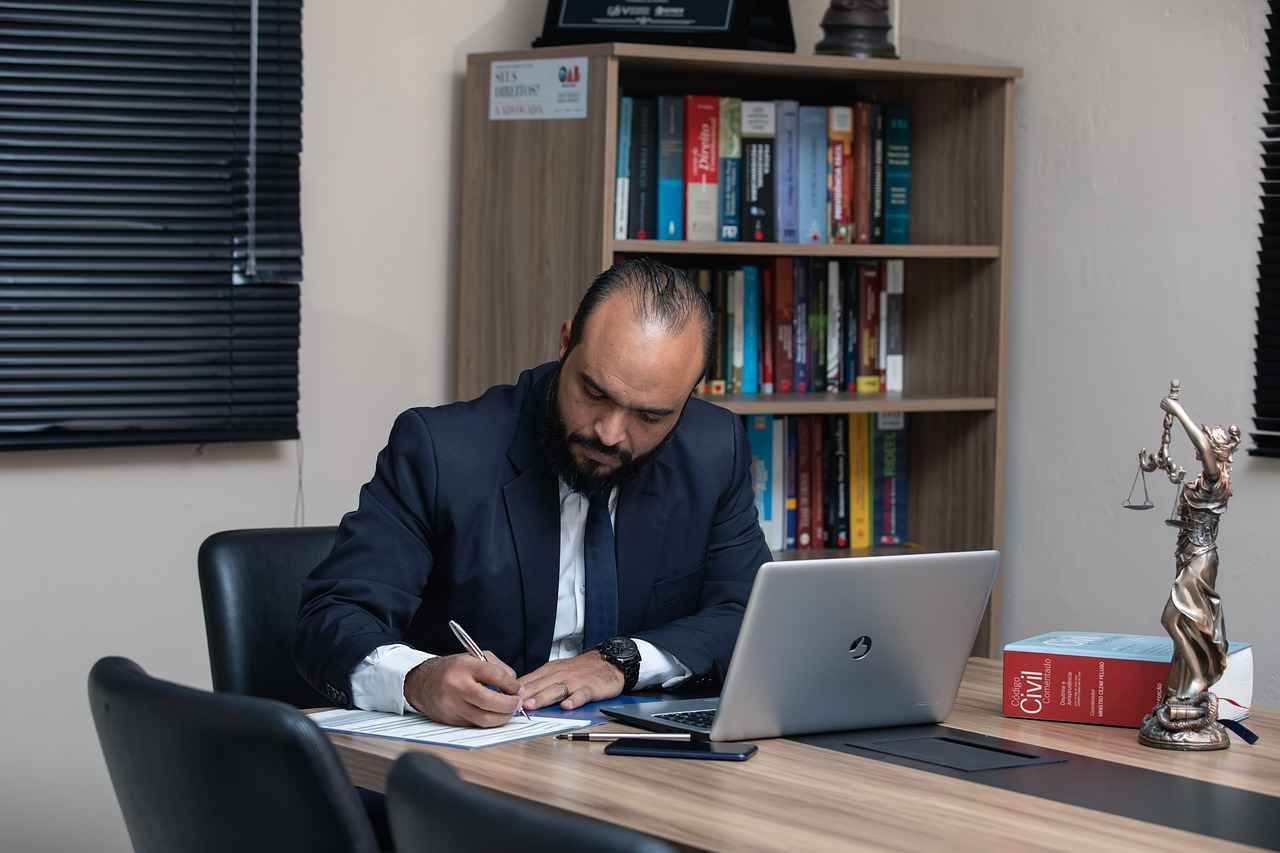
Product Liability: Seeking Legal Representation
Product liability cases are a significant area of personal injury law, arising when a defective product causes harm to consumers. These cases can involve a wide range of products, from household items to pharmaceuticals, and they often lead to serious injuries or even fatalities. If you find yourself in such a situation, knowing how to seek legal representation is crucial for achieving the compensation you deserve.
When searching for an attorney experienced in product liability cases, consider the following steps:
- Research Specialization: Not all personal injury attorneys have the same expertise. Look for lawyers who specifically focus on product liability cases. This specialization ensures they understand the nuances of the law and the complexities involved in proving that a product was defective.
- Check Credentials: Verify the attorney’s qualifications, including their education, years of experience, and any relevant certifications. Membership in professional organizations, such as the American Association for Justice (AAJ), can also be a good indicator of their commitment to this area of law.
- Read Reviews and Testimonials: Online platforms like Avvo, Martindale-Hubbell, and Google Reviews can provide insights into an attorney’s reputation. Look for feedback from previous clients, particularly those who have faced similar product liability issues.
- Schedule Consultations: Many attorneys offer free initial consultations. Use this opportunity to discuss your case and assess their approach. Pay attention to how they communicate and whether they take the time to answer your questions thoroughly.
- Evaluate Their Track Record: Inquire about the attorney’s past cases and their outcomes. A lawyer with a successful history in product liability cases will have a better understanding of how to navigate the legal system effectively.
- Discuss Fees: Understand the attorney’s fee structure upfront. Many personal injury lawyers work on a contingency fee basis, meaning they only get paid if you win your case. Make sure you are comfortable with the terms before moving forward.
Understanding the different types of product defects is also essential. Defects can be categorized into three main types:
- Design Defects: These occur when a product is inherently unsafe due to its design, even if it is manufactured correctly.
- Manufacturing Defects: These occur during the production process, resulting in a product that deviates from its intended design.
- Marketing Defects: These involve inadequate warnings or instructions, failing to inform consumers of potential risks associated with the product.
In addition to the above, it’s important to keep in mind the statute of limitations for filing a product liability claim, which varies by state. In California, for example, the time limit is generally two years from the date of injury. Missing this deadline can bar you from seeking compensation, so acting promptly is crucial.
In metropolitan areas like New York City, Los Angeles, and Chicago, the competition among attorneys can be fierce. Utilize local bar association resources or legal aid organizations to find reputable lawyers in your area. Additionally, consider asking friends, family, or colleagues for recommendations, as personal referrals can provide valuable insights into an attorney’s capabilities.
Finally, be wary of red flags when selecting an attorney. If a lawyer makes unrealistic promises about the outcome of your case or pressures you to sign documents quickly, these could be signs of unprofessionalism. Trust your instincts; if something feels off, it’s worth considering other options.
In summary, navigating product liability cases requires a knowledgeable and experienced attorney who can advocate for your rights. By conducting thorough research, understanding the types of defects, and being aware of potential pitfalls, you can find the legal representation you need to pursue justice effectively.

Wrongful Death Cases: Finding Compassionate Legal Help
When dealing with the tragic aftermath of a wrongful death, it is essential to approach the situation with both compassion and expertise. Wrongful death cases arise when an individual loses their life due to the negligence or misconduct of another party. These situations are not only emotionally devastating for the surviving family members but also legally complex. Therefore, finding an attorney who specializes in wrongful death cases can significantly ease the burden during such a difficult time.
Here are some critical steps to consider when searching for the right legal representation:
- Look for Specialization: It is crucial to find an attorney who specializes in wrongful death cases. These legal professionals have the necessary knowledge and experience to navigate the specific laws and regulations that govern such cases. They can provide invaluable guidance on how to proceed and what evidence is required to build a strong case.
- Assess Experience and Track Record: When evaluating potential attorneys, inquire about their experience in handling wrongful death cases. A lawyer with a proven track record of securing favorable outcomes for their clients can instill confidence in their ability to advocate effectively on your behalf.
- Check Credentials: Ensure that the attorney you are considering is licensed to practice in your state and has a good standing with the state bar association. Look for additional certifications or memberships in professional organizations that specialize in personal injury or wrongful death law.
- Read Client Reviews: Online reviews and testimonials can provide insight into the experiences of previous clients. Look for feedback that highlights the attorney’s communication skills, professionalism, and ability to handle sensitive situations with care.
- Arrange a Consultation: Most attorneys offer free initial consultations. Use this opportunity to discuss your case, ask questions, and gauge the attorney’s approach to handling your situation. Pay attention to how they communicate and whether they demonstrate empathy and understanding.
- Evaluate Fees and Payment Structures: Understanding the attorney’s fee structure is critical. Many wrongful death attorneys work on a contingency fee basis, meaning they only get paid if you win your case. Ensure you fully understand any fees involved before signing an agreement.
- Trust Your Instincts: Ultimately, you should feel comfortable with your chosen attorney. Trust your instincts when assessing whether they are the right fit for you and your family during this challenging time.
In major metropolitan areas like New York City, Los Angeles, and Chicago, the abundance of legal professionals can be overwhelming. Utilize online legal directories, bar association referrals, and personal recommendations to narrow down your options. Remember, the right attorney can provide not just legal assistance but also emotional support as you navigate the complexities of a wrongful death claim.
In summary, finding compassionate legal help in wrongful death cases requires careful consideration and thorough research. By focusing on specialization, experience, and client feedback, you can identify a qualified attorney who will advocate for your family’s rights and help you seek justice during this profoundly challenging time.

Class Action Lawsuits: Legal Representation Insights
Class action lawsuits serve as a powerful legal tool that allows a group of individuals, who have suffered similar harm, to collectively seek justice against a defendant. This collective approach not only helps streamline the legal process but also ensures that individuals with smaller claims can have their voices heard. However, navigating the complexities of class action lawsuits requires the expertise of a qualified attorney who specializes in this area.
When searching for an attorney experienced in class actions, consider the following steps to ensure you find the right legal representation:
- Research Law Firms: Start by researching law firms that are known for handling class action lawsuits. Look for firms with a strong track record of successful cases and positive client reviews. Websites like Avvo and Super Lawyers can provide valuable insights into attorneys’ credentials and client feedback.
- Check Experience: Ensure the attorney has substantial experience in class action lawsuits specifically. This includes familiarity with the procedural requirements and the ability to manage large groups of clients. Ask potential attorneys about their past cases and outcomes.
- Assess Communication Skills: Effective communication is crucial in any legal matter. During initial consultations, assess how well the attorney listens to your concerns and explains complex legal terms in an understandable manner. A good attorney should be approachable and willing to answer your questions.
- Evaluate Resources: Class action lawsuits often require significant resources, including expert witnesses and extensive research. Confirm that the attorney’s firm has the necessary financial and logistical support to handle your case effectively.
- Look for a Strong Support Team: A capable attorney should have a dedicated support team, including paralegals and legal assistants, who can help manage the case efficiently. This team will be essential for handling the various administrative tasks involved in a class action lawsuit.
- Review Fee Structures: Understand the attorney’s fee structure upfront. Many class action attorneys work on a contingency fee basis, meaning they only get paid if you win the case. Ensure that you are clear on how fees will be handled, including any potential costs that may arise during the litigation process.
- Seek Recommendations: Personal referrals can be invaluable. Ask friends, family, or colleagues if they can recommend an attorney who has successfully handled class action lawsuits. Their experiences can provide insight into what to expect.
In metropolitan areas like New York City, Los Angeles, and Chicago, where class action lawsuits can involve large groups of plaintiffs, it is particularly important to find an attorney who is well-versed in the local legal landscape. These cities often have specific regulations and nuances that can affect your case.
Additionally, be wary of red flags when evaluating potential attorneys. Avoid those who make unrealistic promises about the outcome of your case or who seem more interested in their fees than your needs. Trust your instincts; a competent attorney will prioritize your interests and provide a realistic assessment of your case.
Ultimately, finding the right attorney for a class action lawsuit can significantly impact the outcome of your claim. By following these guidelines and conducting thorough research, you can ensure that you have the best possible representation to advocate for your rights and seek the compensation you deserve.

Criminal Cases: Assault, Battery, and More
When it comes to criminal cases, particularly those involving assault and battery, having skilled legal representation is not just beneficial; it is often essential. These charges can lead to severe consequences, including significant fines and imprisonment. Therefore, knowing how to find a qualified criminal defense attorney is crucial for anyone facing such serious allegations.
In the realm of criminal law, the terms assault and battery are often used interchangeably, but they have distinct legal definitions. Assault typically refers to the threat of violence or an attempt to cause harm, while battery involves actual physical contact or harm. Understanding these differences can help in choosing the right attorney who specializes in the appropriate area of criminal defense.
Finding the Right Criminal Defense Attorney
- Research and Referrals: Start by asking friends, family, or colleagues for recommendations. Personal referrals can lead you to trustworthy attorneys who have demonstrated competence in handling similar cases.
- Online Reviews and Ratings: Utilize platforms such as Avvo, Martindale-Hubbell, and Google Reviews to gauge the reputation of potential attorneys. Look for those with high ratings and positive feedback from former clients.
- Specialization: Ensure that the attorney specializes in criminal defense, particularly in assault and battery cases. A lawyer with a focused practice is more likely to understand the nuances of your case.
- Consultation: Most attorneys offer a free initial consultation. Use this opportunity to discuss your case and evaluate the attorney’s communication style, experience, and approach.
Credentials to Look For
When selecting a criminal defense attorney, it is essential to verify their credentials. Look for the following:
- Bar Association Membership: Ensure the attorney is licensed to practice in your state and is a member of the state bar association.
- Experience: An attorney with years of experience in criminal law, particularly in cases similar to yours, will be better equipped to navigate the legal system.
- Track Record: Inquire about their success rate in handling assault and battery cases. A proven history of favorable outcomes can be a significant indicator of their capabilities.
Red Flags to Avoid
While searching for a criminal defense attorney, be vigilant for potential red flags:
- Lack of Experience: Avoid attorneys who do not have a background in criminal law or who have little to no experience with assault and battery cases.
- Poor Communication: If an attorney is unresponsive or fails to communicate effectively during your initial consultation, this may indicate how they will handle your case.
- Unrealistic Promises: Be wary of any attorney who guarantees specific outcomes. The legal system is unpredictable, and no attorney can assure a particular result.
In major metropolitan areas like New York City, Los Angeles, and Chicago, the competition among criminal defense attorneys is intense. This can be advantageous for clients, as it encourages attorneys to maintain high standards of service and expertise. However, it also necessitates thorough research on your part to find the best representation.
In conclusion, navigating the complexities of criminal cases such as assault and battery requires not only understanding the legal definitions and implications but also knowing how to find the right attorney. By conducting thorough research, verifying credentials, and being aware of red flags, individuals can significantly improve their chances of securing effective legal representation. Remember, the stakes are high, and the right attorney can make all the difference in the outcome of your case.
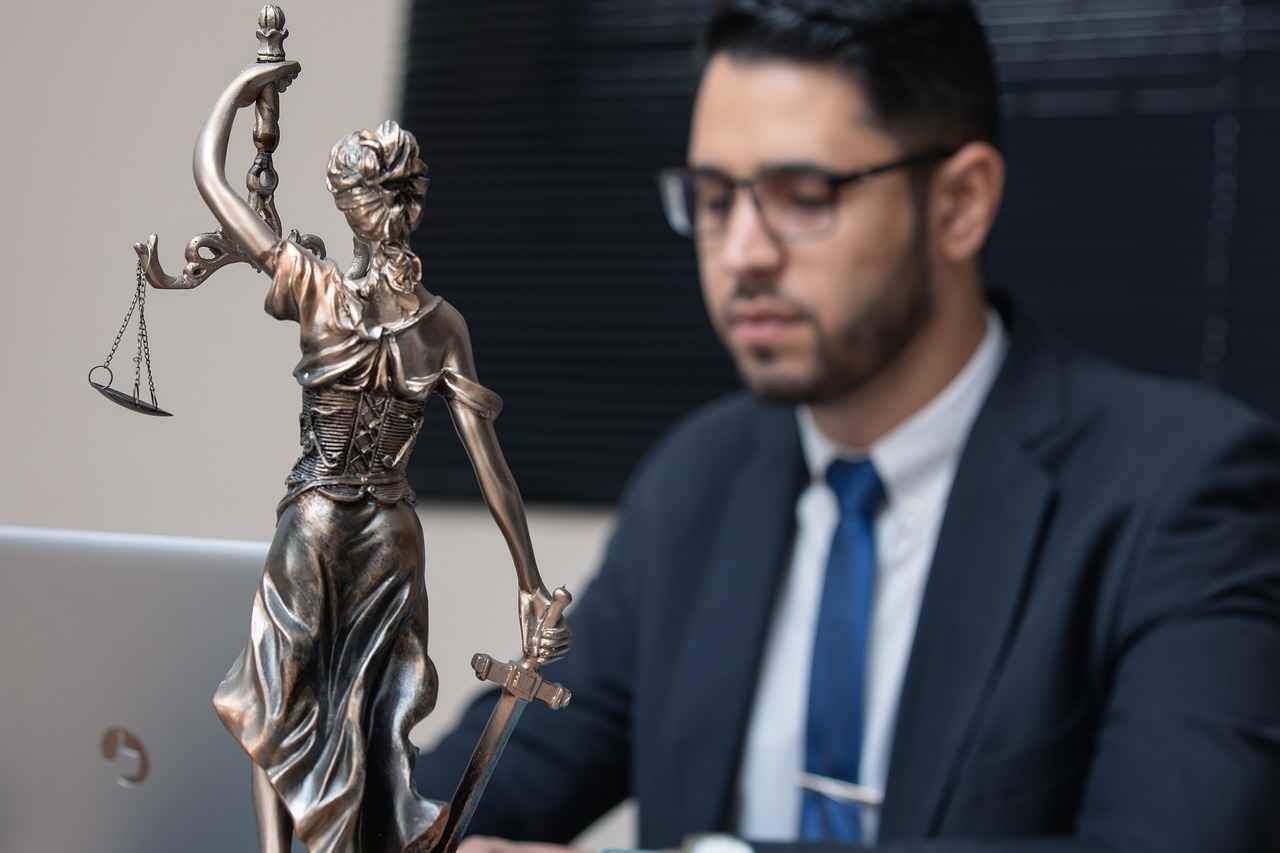
Family Law: Divorce and Child Custody Matters
Family law is a critical area of legal practice that addresses a variety of sensitive issues, particularly divorce and child custody. These matters can be emotionally charged, requiring not only legal expertise but also a deep understanding of the emotional dynamics involved. Navigating through these complex situations can be overwhelming, which is why finding the right attorney is essential.
When seeking an attorney who specializes in family law, it is important to consider several factors that can significantly impact the outcome of your case. Here are some practical tips for finding a qualified family law attorney in your area:
- Research Specialization: Look for attorneys who specifically focus on family law. This specialization ensures they are up-to-date with the latest laws and practices related to divorce and custody issues.
- Check Credentials: Verify their qualifications, including education, bar admissions, and any additional certifications in family law. Membership in professional organizations, such as the American Academy of Matrimonial Lawyers, can also indicate a higher level of expertise.
- Read Reviews: Online reviews and testimonials can provide insights into an attorney’s reputation and their ability to handle cases similar to yours. Websites like Avvo and Martindale-Hubbell are good starting points.
- Initial Consultation: Schedule consultations with potential attorneys. This meeting is an opportunity to discuss your case and gauge their communication style and approach. Pay attention to how they listen to your concerns and provide feedback.
- Assess Compatibility: Family law cases can be lengthy and emotionally taxing. It is crucial to choose an attorney with whom you feel comfortable discussing sensitive issues.
- Evaluate Fees: Understand the attorney’s fee structure upfront. Some may charge a flat fee, while others might bill hourly. Ensure that you are clear about all potential costs to avoid surprises later.
In addition to these tips, it is important to be aware of common red flags when hiring a family law attorney:
- Lack of Communication: If an attorney is difficult to reach or slow to respond during the initial consultation, this may indicate future communication issues.
- Overpromising Results: Be wary of attorneys who guarantee specific outcomes. Family law cases can be unpredictable, and a good attorney should provide realistic expectations.
- Pressure Tactics: Avoid attorneys who rush you into making decisions or signing contracts without adequate time for consideration.
In summary, finding the right family law attorney can make a significant difference in the outcome of divorce and child custody cases. By conducting thorough research and being mindful of the qualities and red flags mentioned, you can select a legal professional who will advocate for your best interests during this challenging time.
Frequently Asked Questions
- What should I look for when hiring a lawyer in Oakland?
When hiring a lawyer, consider their experience in your specific legal issue, their reputation, and their communication style. You want someone who not only knows the law but also understands your unique situation and can explain things clearly.
- How much does it cost to hire a lawyer in Oakland?
The cost of hiring a lawyer can vary widely based on their experience and the complexity of your case. Some may charge a flat fee, while others work on an hourly basis or take cases on a contingency fee basis, meaning they only get paid if you win.
- Can I represent myself in a legal matter?
Yes, you can represent yourself, but it’s generally not recommended, especially for complex cases. Having a lawyer can significantly increase your chances of a favorable outcome as they know the ins and outs of the legal system.
- How do I know if I have a valid case?
To determine if you have a valid case, consider consulting with a lawyer who can evaluate your situation and provide professional advice. They can help you understand your rights and the strength of your claim.
- What should I expect during my first meeting with a lawyer?
During your first meeting, expect to discuss the details of your case, the lawyer’s experience, and their approach to handling your situation. It’s also a good time to ask about fees and what you can expect moving forward.

